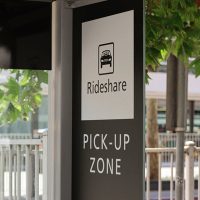Florida Accidents Involving Rideshare Cars

Rideshare companies, also known as transportation network companies (TNCs), have filled a need in Florida and other states, and continue to do business, even in the face of scandal and other problems. Most of the time, rideshares get their customers to their destination with no issue – but if you have been involved in an accident involving a car working for Uber or Lyft, it can be confusing and intimidating to figure out exactly what your rights are and the damages (if any) to which you may be entitled. A knowledgeable attorney can help.
Extra Insurance Required
Normally, Florida is a no-fault state for purposes of auto insurance, which means that if a person’s injuries are not sufficiently severe, they are not permitted to file suit in court to try and recover damages. Instead, they are urged to file insurance claims using the personal injury protection (PIP) coverage that every Florida driver is required to carry. If the accident involves a TNC car, the issue is more complex, because whether or not the driver was engaged via the company’s app will affect the extent to which they may be liable.
In 2017, Florida passed a law requiring TNC companies and drivers to carry extra insurance which kicks in if the app is engaged; if a driver does not provide this extra coverage, the TNC must do it. In the event of an accident, a victim can seek compensation via this insurance, instead of being required to go through their own policy first. The actual likelihood of receiving compensation will depend on the nature of your case, but this is the correct procedure in most cases.
Applies To Other Road Users
While the majority of cases filed against TNCs are based in a broad theory of negligence, it is also sometimes possible to hold a TNC liable for what is known as negligent hiring. Florida law requires that a TNC vet a potential driver according to very specific requirements – for example, the company must conduct both a local and national background check, refuse to hire anyone with more than 3 moving violations on their record, and reconfirming a driver’s good standing every 3 years. Failure to do so is actionable.
Keep in mind that Florida’s rideshare law does not only apply to passengers in vehicles – rather, it explicitly permits pedestrians and other road users who may have been injured to file suit against the company if there is cause to do so. Depending on a person’s specific situation, they may choose to file a claim with their own insurance policy, but it is important to be aware that just because you were not injured while in a vehicle does not mean you have no chance to recover for what you have been through.
Contact An Orlando Rideshare Accident Attorney
If you have been injured in an accident involving a vehicle driving for Uber or Lyft, you do generally have the right to seek damages from both the driver and the company – but it can be a complex endeavor. An Orlando personal injury attorney from the Hornsby Law Group can help answer your questions about recovery and help to guide you through the legal process. Call our office today for a free consultation.
Source:
leg.state.fl.us/statutes/index.cfm?App_mode=Display_Statute&URL=0600-0699/0627/Sections/0627.748.html